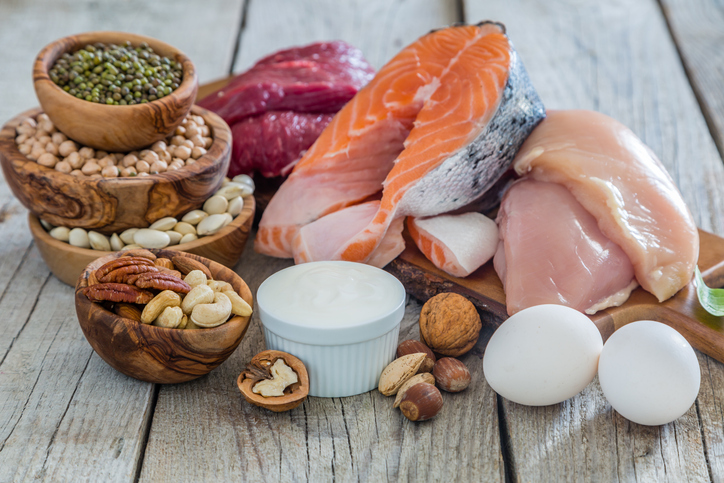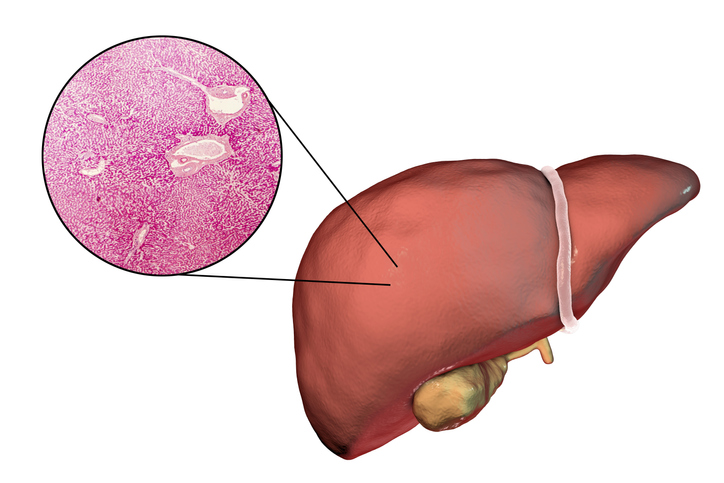Give Your Liver a Little Love With Protein

By Joy Stephenson-Laws, J.D., Founder
Did you know that your liver is responsible for more than 500 vital functions and weighs about three pounds, making it the body’s largest solid internal organ?
“Among its many jobs are converting food into fuel, processing fat from your blood, clearing harmful toxins, and making proteins that help your blood clot,” according to Harvard Health.
“Yet this hard-working, supersized organ is susceptible to a dangerous and often hard-to-diagnose condition called nonalcoholic fatty liver disease, or NAFLD.”
I have previously blogged about NAFLD. Unfortunately, this disease is quite common in Americans and took the life of George Michael.
It is normal for the liver to have some fat, but if more than five to 10 percent of the liver’s weight is fat, then it is considered to be a fatty liver. To put it simply, NAFLD is a fatty liver usually caused by a poor diet and obesity and occurs in people who drink little to no alcohol.
(There is also alcoholic fatty liver disease).

NAFLD is the most common type of liver disease, estimated to currently affect between 80 to 100 million Americans.
“The disease raises your risk of heart disease and left untreated, NAFLD also can lead to an inflamed liver, a condition called nonalcoholic steatohepatitis (NASH). In fact, as many as 40% of people with NAFLD develop NASH. NASH can lead to scarring of the liver; severe scarring, called cirrhosis, increases your risk of liver cancer,” (Harvard Health).
You also do not have to be overweight or obese in order to develop NAFLD. You can actually look pretty slender but still have a fatty liver.
So, the obvious way to help prevent and manage NAFLD is to control your weight and lead a healthy lifestyle by eating healthily and exercising regularly, but you also may want to focus on your protein intake.
Generally, our bodies require six groups of nutrients to stay healthy: water, carbohydrates, fats, vitamins, minerals and protein. And we need the right balance of each of these nutrients to remain healthy.
Protein may protect the liver.You may already know that protein is a nutrient key in muscle building and repair, but you may not know that protein may also be key in protecting against fatty liver. A recent study found evidence which suggested that a high-protein, reduced caloric diet prevented fat from accumulating in the liver more than a low-protein diet.
The study examined obese people with NAFLD. For three weeks, some of the participants followed a high-protein diet while the others followed a low-protein diet. All of the participants also underwent weight loss surgery and because of this samples of their livers were collected.
According to a recent report discussing the study, “Analysis of the samples showed that a calorie-reduced, high-protein diet decreased liver fat more effectively than a calorie-reduced, low-protein diet: while the liver-fat content in the high-protein group decreased by around 40 percent, the amount of fat in the liver samples of the low-protein group remained unchanged.”
Furthermore, regardless of diet type, all the participants lost around the same amount of weight.
"If the results continue to be confirmed in larger studies, the recommendation for an increased intake of protein together with a healthy low-fat diet as part of an effective fatty liver therapy could find its way into medical practice," said one of the lead researchers.
I like these findings, because it just goes to show us, once again, how powerful diet can be and how critical it is to get adequate amounts of key nutrients. Talk to your doctor about what amount of protein is appropriate for you. You can also ask for a blood test that will determine if you are at risk for NAFLD.
There are plenty of healthy protein sources out there to choose from (both animal and plant-based):
- Eggs
- Almonds
- Nut butters
- Chicken breast
- Oats
- Cottage cheese
- Greek yogurt
- Broccoli
- Quinoa
- Lentils
- Pumpkin seeds
- Fish
- Peas
And as always, workout regularly, maintain a nutrient-rich, healthy diet and drink alcohol in moderation (if at all) in order to increase your chances of having a healthy liver.
Remember, it serves a critical role in our health.
Enjoy your healthy life!
Disclaimer: This article is not intended to provide medical advice. Please consult with your doctor or another competent healthcare practitioner to get specific medical advice for your situation.
The pH professional health care team includes recognized experts from a variety of health care and related disciplines, including physicians, attorneys, nutritionists, nurses and certified fitness instructors. This team also includes the members of the pH Medical Advisory Board, which constantly monitors all pH programs, products and services. To learn more about the pH Medical Advisory Board, click here.







